March 8, 2018
As the world observes International Women’s Day on March 8, young women and girls are emerging as 2018’s strongest voices for social change.
Teens like Emma González and Kali Clougherty, survivors of the Feb. 14 high school shooting in Parkland, Fla., are leading America’s growing pro-gun control youth movement.
Teen Vogue has switched the focus of its editorials from fashion and gossip to political resistance, publishing scorched-earth takedowns of U.S. President Donald Trump.
Closer to home, young Canadian women like Molly Burke have been key advocates for the rights of people with disabilities.
The theme of this year’s International Women’s Day is #MyFeminism — celebrating the diverse roles women play in shaping Canada and countries around the world.
Here are seven young New Brunswick women who may not be household names — yet — but whose work in schools, as members of activist groups, with not-for-profits, and in their daily lives is helping to forge the future of the province.
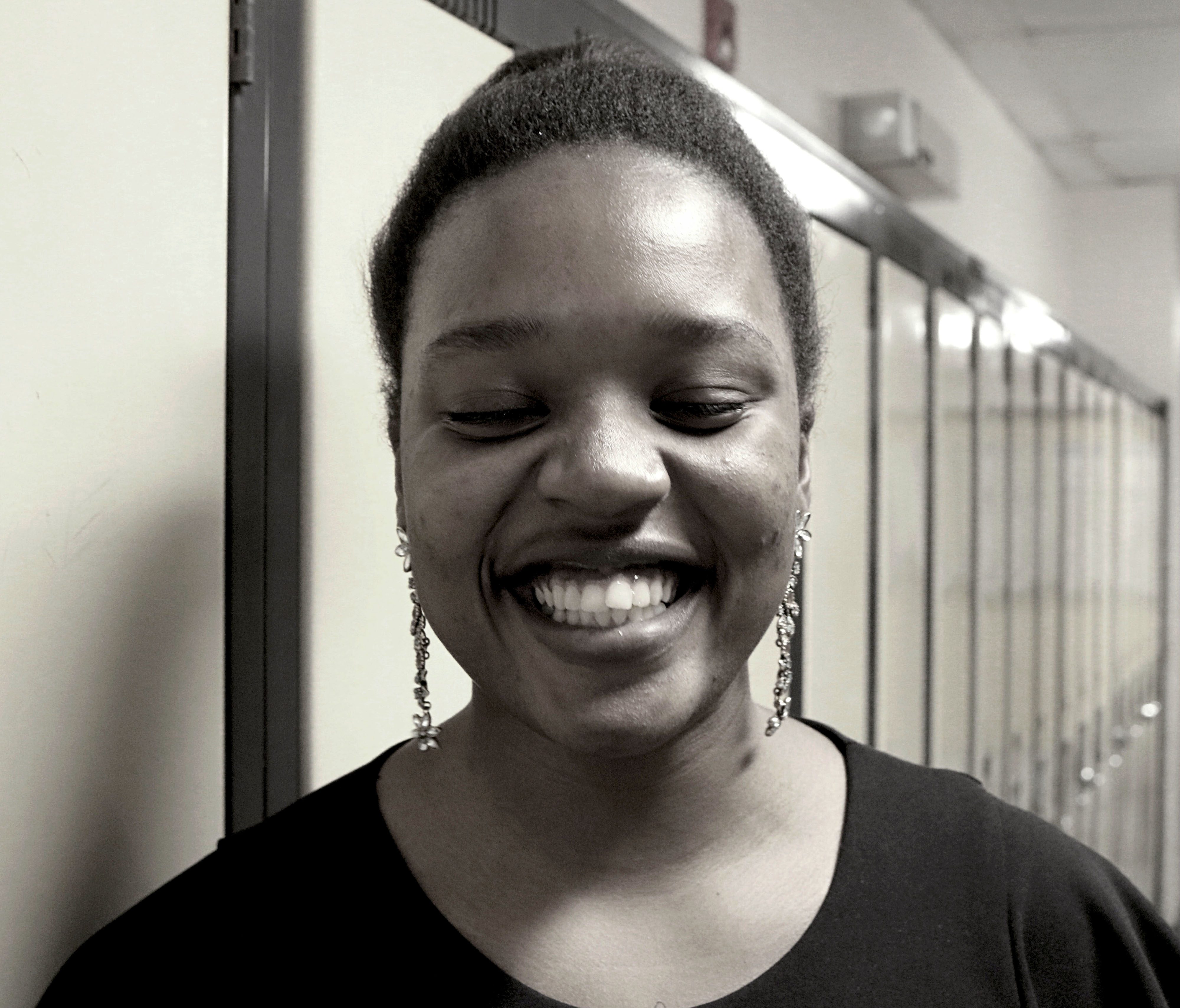
Marylise Habiyambere, 18
When Marylise Habiyambere arrived in New Brunswick as an elementary school student, she didn’t feel she fit in.
“There are a lot of stereotypes about being from where I’m from, being black, what we’re capable of,” said Habiyambere, 18, who was born in Rwanda and came to Fredericton in 2007. “I faced a lot of discrimination.”
Writing poetry helped her “find an outlet for the emotions that I was going through,” she said. “It helped me grow and find strength as an individual, and not let external factors write my story.”
Her family moved from Fredericton to Saint John, which she described as a “life-changing” experience and an escape from her former bullies.
“Saint John is a really friendly place,” she said. “I felt like I could be myself, and I felt capable and motivated.”
'Feminism ... should consider the issues faced by different types of women — and how we can help each other, and find that sisterhood.'
Now a Grade 12 International Baccalaureate student at Saint John High School, she founded a club to promote women’s empowerment and increase awareness of the “struggles of women of colour, of different sexual orientations, and religious beliefs.”
The club organized a feminine hygiene products drive for the Coverdale Centre for Women, among other volunteer initiatives. In her spare time, she tutors inner-city kids at the Saint John Boys and Girls Club.
“What I can teach them based on my experiences is way more important than anything I could teach them on paper,” she said. “I try to focus on building good habits and helping them develop their creative skills.”
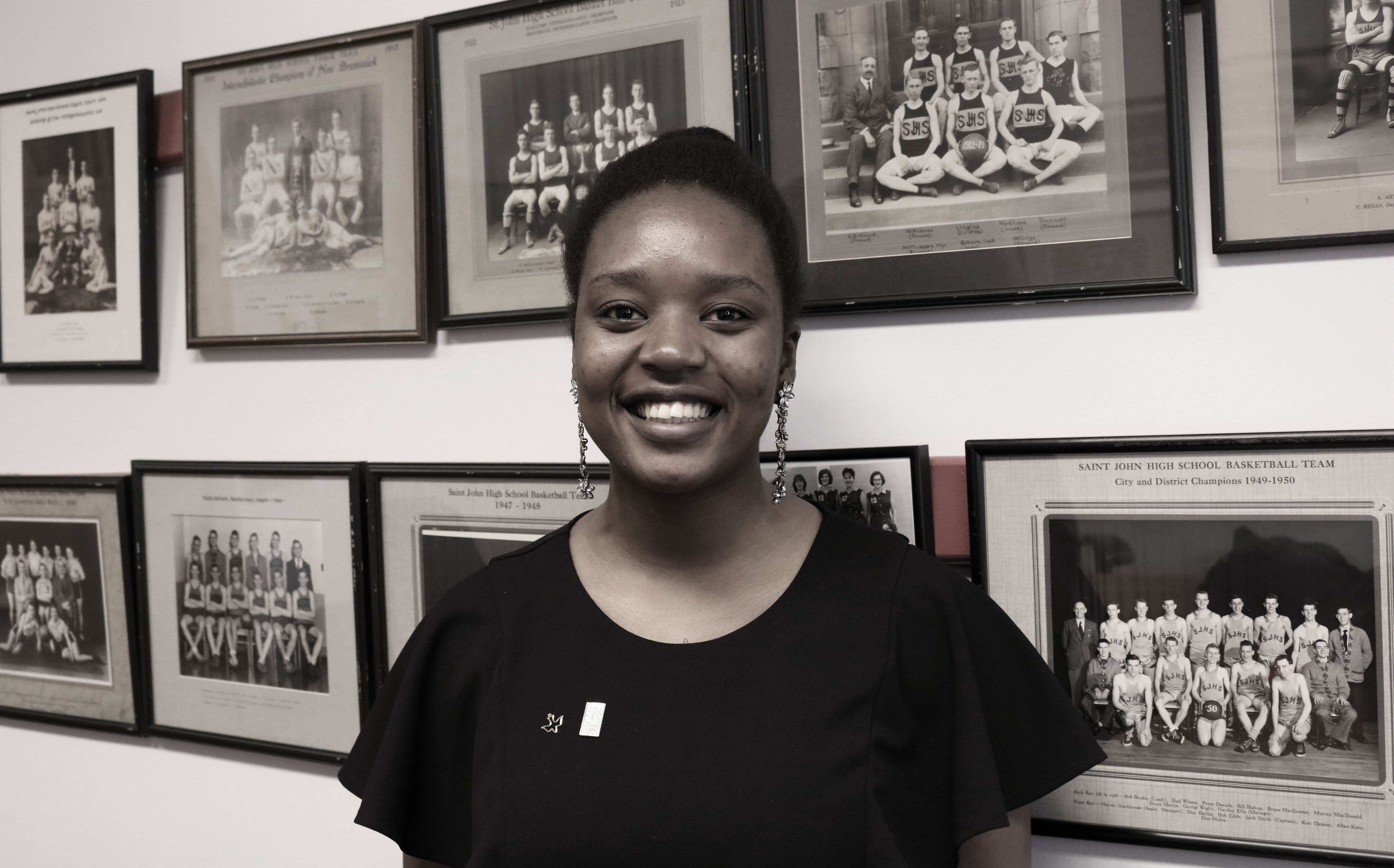
She excels in biology and sciences and dreams of becoming a neurosurgeon.
“I’m interested in the study of the human brain and human behaviour, and why we do the things that we do,” she said.
Habiyambere was recently selected from more than 5,000 applicants to receive a Loran scholarship, awarded for character, integrity, courage, commitment to serving the community, and long-term leadership potential.
She wants to inspire other young women and “give a different image to what feminism is,” she said.
“Black youth don’t see enough representation of other black youth that are not letting their adversity shape them. There’s a narrative where not much is expected of them, and they don’t feel valued and capable.”
“Feminism should be multifaceted,” she said. “It should consider the issues faced by different types of women — and how we can help each other, and find that sisterhood.”
Grace Maloney, 12
Mikayla Hanlon, 13
Sophia Gauthier, 14
Valerie Cullinan, 14
On Jan. 20, four young women took their places in front of hundreds of people gathered for the Saint John Women’s March. The crowd fell silent. The girls took a deep breath and declared together:
"When guys tell us our ass looks nice in these jeans, it doesn’t feel like a compliment.
'Take it as a compliment,' they say.
It is supposed to be a compliment, but it does not feel like a compliment . . .
Maybe I bought these jeans because they make me feel good about myself.
Maybe I bought these jeans because I like the shade of blue.
Maybe I didn’t buy these jeans for you."
Maloney, Hanlon, Gauthier, Cullinan, all friends and students at the InterAction School of Performing Acts, were talking one day about school dress codes that seemed to unfairly target young girls.
“Young women get reprimanded for what they wear, and the young men don’t,” Gauthier said.

The girls decided to write a spoken-word piece about about their experiences with double standards and sexual harassment.
Dancer Grace Maloney developed a “movement piece” to accompany the poem.
The girls identified the central words in the poem, and she “came up with a dance move for each word,” she said. “Then we expanded those moves and made them part of the whole dance.”
A video of their performance, taken at the Women’s March by MP Wayne Long, was viewed more than 8,600 times on Facebook.
CBC New Brunswick filmed this performance at the InterAction School of Performing Arts.
They hope the performance inspires young women to speak up when they notice their peers being treated unfairly.
“To me, everyone should be treated the same,” Maloney said.
‘If we were sure we knew ourselves better than you did . . .
You would not be able to stop us:
And that is exactly what you are afraid of.’
Although people can still be “closed-minded” about the idea of feminism, Hanlon said, “to me, it just means being proud of who I am, and trying to help other women and girls as much as I can.”
The reaction to their spoken word piece has been encouraging.
“It’s hard when we’re this age to say what we feel,” Cullinan said. “But [the poem] was an opportunity to speak what we think. I don’t care if people don’t like it. The people that are close to us like it, and that’s what matters.”
That self-assurance is echoed in the final lines of their poem:
"Because if we were confident even to do what we wanted
If we were sure we know ourselves better than you did . . .
You would not be able to stop us:
And that is exactly what you are afraid of."
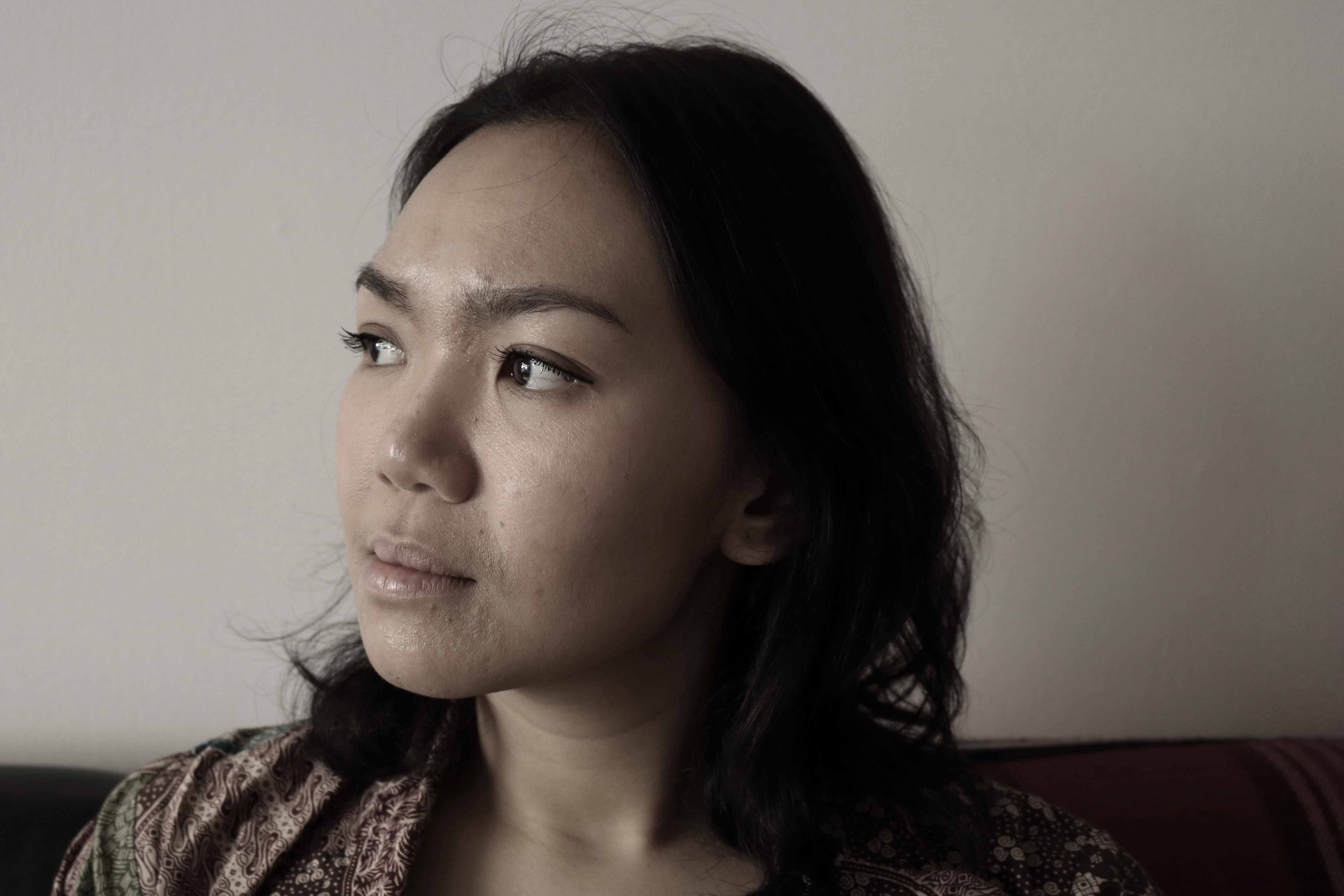
Khairunnisa Ayutami Intiar, 26
Khairunnisa Ayutami Intiar, nicknamed Inda, has a cosmopolitan worldview.
The daughter of a diplomat, she lived in Afghanistan, India, Vietnam, Iran, Yemen, Uzbekistan, and her native Indonesia before moving to Canada to study journalism and international relations at St. Thomas University.
She moved to Moncton four years ago. She’s seen a side of the city some people don’t.
“When I came to New Brunswick, I met people from all over the world,” Intiar said. “I often find myself sitting around a table where people speak 10 different languages. In my French class, I think we had nine people from seven different countries.
“It made me realize how much power New Brunswick has in its diversity.”
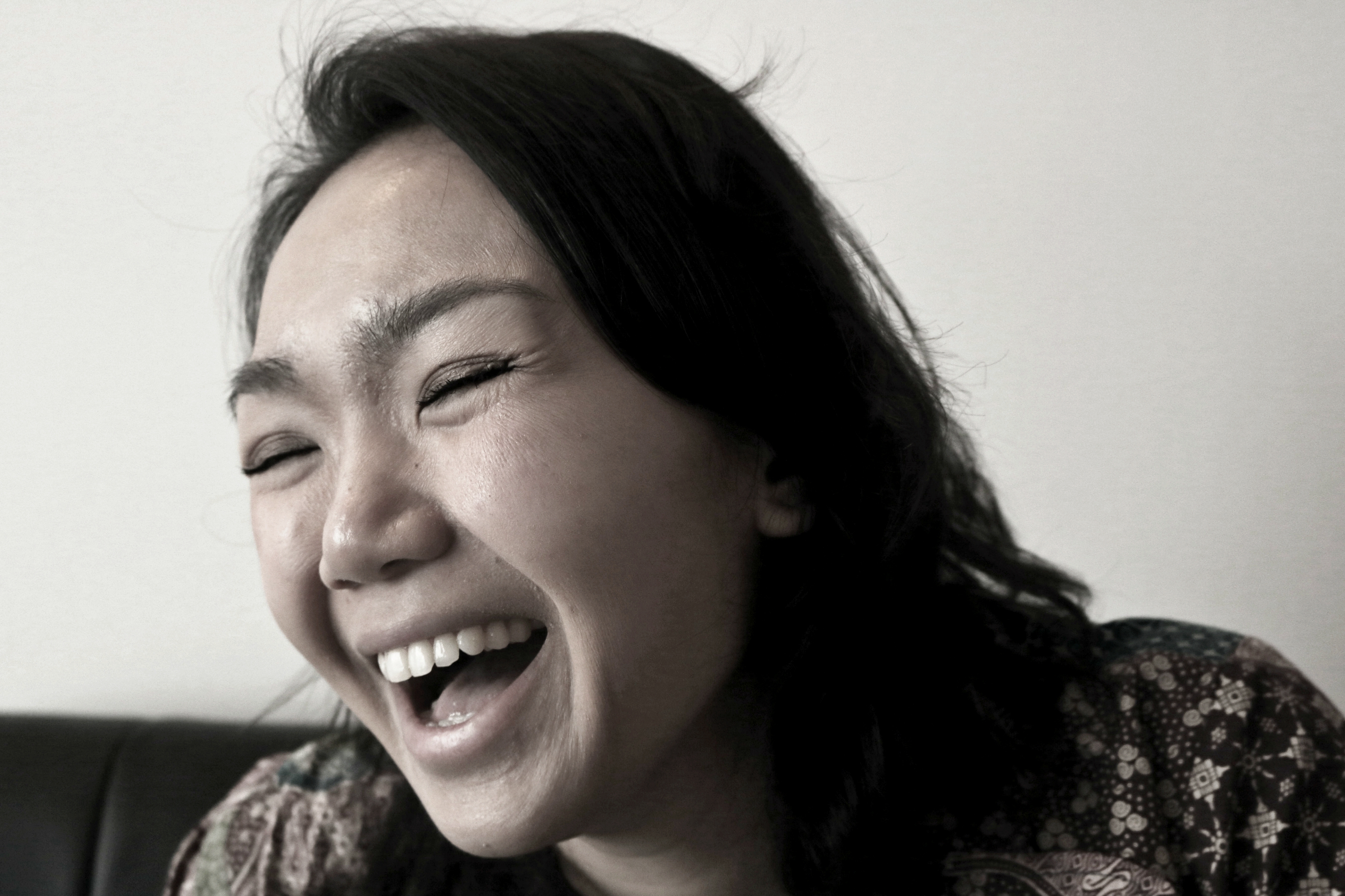
In 2014, Intiar helped lead Diaspora E-Class, a project in which expats held weekly English classes for children at Indonesian schools and orphanages via Skype.
“We helped them see the world through our eyes,” she said, “so that they can dream of becoming more than a civil servant or someone in the military or government.”
Intiar is also a member of the Young Women’s Council of the Moncton YWCA.
In June 2017, she participated in a leg of Canada C3, an epic 150-day sailing journey from Toronto to Victoria via the Northwest Passage, as part of Canada 150.
“Because I’m a Muslim, and a woman, sometimes I have an identity crisis,” she said. “I don’t know where I come from. But on that ship, I felt like my ideal version of Canada was there. I felt like all of my identities can come together without having to compromise.”
Young and Muslim in Moncton
But being a young Muslim woman in Moncton — or anywhere in the world right now — is “tough,” Intiar said.
“My sister, she wears a hijab. There’s a lot of hate and misconceptions that people who wear a hijab are oppressed. My sister had people in Toronto come up to her and be like, ‘Aren’t you oppressed? You’re allowed to study and work by yourself?’
On the other hand, Intiar explained, “someone like me, who doesn’t wear the hijab, middle-aged Muslim men come up to me and are like, ‘Why aren’t you more like your sister, why don’t you wear the hijab? You’re so Westernized, you’re so liberal.’
“Here in Moncton, I don’t get that as much. I feel more accepted at my mosque. It’s really cool.”
For Intiar, feminism means “fighting for the rights of everybody.”
“I can’t fight for the rights of my sisters who wear a hijab, but not fight for the rights of the LGBTQ community or Indigenous women and girls.”
Listen to Khairunnisa Ayutami Intiar describe how, as a young Muslim woman, she fights for the rights of everybody.
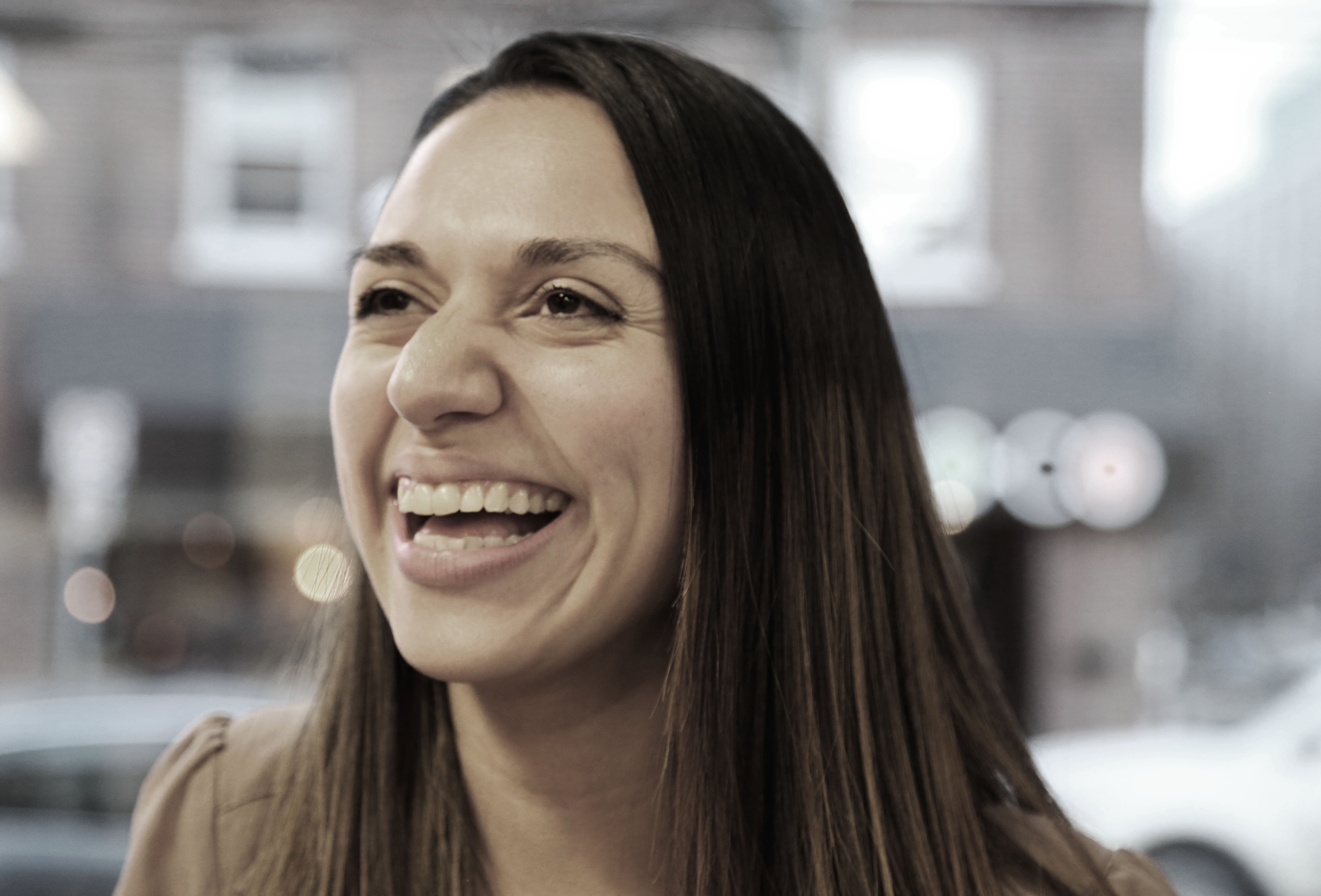
Arianne Melara, 26
Arianne Melara is all about defying stereotypes.
“The moment you say that you’re from El Salvador, the image that shows up in other people’s minds is something negative: gang violence, or being illegal, or Donald Trump trying to deport all the Salvadorans,” said Melara, who works as a project manager at the New Brunswick Multicultural Council.
“As a Salvadoran, it’s unfair to hear those things. One side of the story is dominating the conversation.”
After graduating from St. Thomas University with a degree in international relations and economics in 2016, she wanted help change the narrative around newcomers to New Brunswick.
‘No matter the path that brought you to New Brunswick, all immigrants that come here are bringing hope with them.’
She’s helping lead a program called Imagine NB — a two-year bilingual leadership accelerator for young newcomers to New Brunswick.
“No matter the path that brought you to New Brunswick, all immigrants that come here are bringing hope with them,” she said.
“They are bringing unique, diverse talents, skills, and perspectives that we need to make New Brunswick better.
“I’d like to invite all New Brunswickers to be open. Be curious. Take a newcomer out for coffee. Chat with that person. Immigrants love sharing their stories: we want to be New Brunswickers.”
Melara said that to her, feminism means supporting young women from diverse backgrounds to seek out leadership positions in politics, education and industry sectors.
She has some words of encouragement for young women.
“You have to believe what you say,” she said. “Believe in the convictions that you carry inside yourself. Sometimes you’re afraid, but elevate your voice and speak up for what you think is right.”
